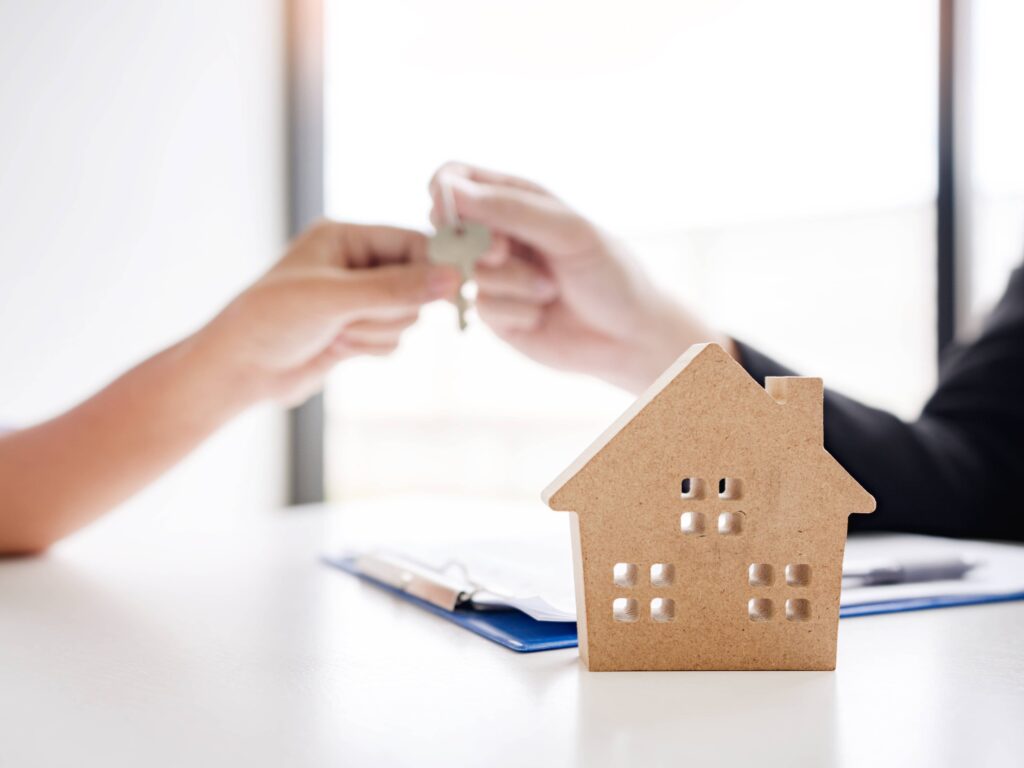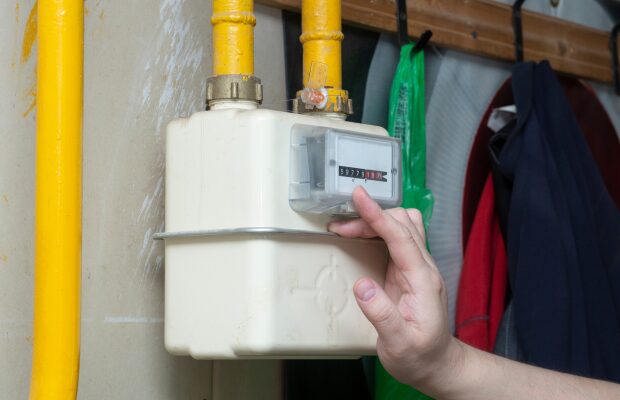Renting your first home is hugely exciting, but can also feel daunting, too.
Here, we’ll look at the steps to renting for the first time and outline everything you’ll need to know before taking on your first tenancy…
1. Get your documents and finances in order
When you rent a property, your landlord will carry out various checks to help them decide if you’re the right person to rent their property.
Those checks will often be carried out through the landlord’s letting agent and they’ll require various documents from you, including:
- Proof of identity – a driving licence or passport
- Proof of current address – a recent utility or council tax bill
- Proof of income – three to six months of payslips or two to three years of accounts / tax returns if you’re self-employed
- Immigration status documents to proof you have a right to rent in the UK should you be from overseas
By having these documents and all information required to hand right away, you’ll be able to get things moving quickly should you find a property you wish to rent.
Affordability checks
Your landlord’s letting agent will undertake affordability checks through a referencing agency to ensure you have the financial means to pay rent for the property you’re looking at.
Although affordability criteria can vary, a general rule of thumb is that you’ll need to earn at least 30 times the monthly rent in annual salary to pass the check.
So, if your monthly rent is £800, you’ll need to earn £24,000 per year – or have a joint income of at least that figure if you’re renting with someone else.
The referencing agency will also carry out a credit check on you and anyone else over the age of 18 who will be living at the property.
Guarantors
If your income is too low to pass affordability checks or your credit history has shown some red flags, your landlord may ask you to provide a guarantor if you wish to rent their property.
A guarantor is someone who will become responsible for paying your rent should you be unable to do so – usually a parent.
The guarantor will be fully referenced in the same way and must be able to pass affordability checks.
If they do pass, they would be required to sign an agreement that commits them to cover your rent obligations should you be unable to do so.
2. Consider location, property type and tenancy length
Once you start looking for available properties to rent, it’s important you carefully consider the location and the type of property you want to live in.
You’ll also need to think about what you can comfortably afford.
If you need good access to transport links for work, you might wish to consider properties within a certain radius of a train or Underground station.
If you have children, school catchments might come into your thinking.
How much space do you need? Would a flat be large enough or could you afford to rent a house and enjoy some additional space?
How long will you stay?
You should also consider your plans in the future and how long you want to stay at your first rental property.
Most fixed term tenancy agreements are between six months and two years long.
So, you should think about how long you want to commit to.
Your landlord may be willing to insert a break clause into a tenancy that’s 12 months or longer, meaning either they or yourself can leave the tenancy earlier, for example after six months.
3. Think about how you’ll use the property
When considering properties to view, think about your needs and how you want to use your first rental property.
If outdoor space is important to you, you may want to disregard renting a flat or apartment.
And if a large entertainment space is key, you should pinpoint your property search on those rentals with large kitchen diner spaces.
Think, also, about:
- The number of bedrooms you need
- The amount of storage you require
- Whether you want to rent a furnished or unfurnished property
- The parking you require
4. Understand tenancy deposits
When you’ve found a property to rent and you’ve passed all the required affordability checks, your landlord will request a security deposit alongside your tenancy agreement.
It’s important to understand how much of a deposit your landlord is legally allowed to request and how and where your deposit should be held and protected.
Maximum deposits
Since June 2019, the maximum deposit a landlord can charge a tenant is five weeks’ worth of rent if the annual rent doesn’t exceed £50,000.
If the annual rent is more than £50,000, the landlord can request six weeks of rent as a deposit.
Holding deposits
If your landlord requests a holding deposit to reserve the property, the maximum amount you should pay is one week of rent.
Your holding deposit should then be returned within seven days of your landlord making a final decision on you renting the property, unless:
- You give false or misleading information on your application
- You fail a Right to Rent check
- You pull out of renting the property
- You fail to take reasonable steps to secure the tenancy agreement
Tenancy deposit protection
Once your landlord receives your deposit, they must lodge it in one of three government-backed deposit protection schemes.
The deposit protection schemes help to ensure you receive you deposit back in full at the end of your tenancy if:
- You meet your obligations in the tenancy agreement
- You don’t cause damage to the property
- You pay your rent and bills in full and on time
Your deposit at the end of the tenancy
When your tenancy is over, your landlord must outline any deductions they wish to make from your deposit and provide reasons for doing so.
If you agree with how much of your deposit you landlord wishes to return, the agreed amount must be returned to you within 10 days.
If you dispute the amount, the landlord’s chosen deposit protection scheme can help to find a resolution, while your deposit remains protected.
5. Know your rights and obligations
When you sign a tenancy agreement, you’re pledging to meet your obligations towards the property you’re renting and your landlord.
That means you should:
- Avoid damaging the property in any way
- Pay your rent in full and on time
- Pay all other bills you’re responsible for, as outlined in your tenancy agreement
- Allow your landlord or their letting agent to inspect the property with adequate notice
- Not sub-let any part of the property unless the tenancy agreement says you can
- Report maintenance problems in good time
As well as your obligations, you also have the right to:
- Live in a property that is safe and in a good state of repair
- Quiet enjoyment of the property and at least 24 hours’ notice of property inspections
6. Be organised ahead of moving-in day
If you’ve ever moved home before with family, you’ll know it can be a stressful experience – even though the end result is hugely exciting.
Being organised and prepared is key to any successful move, so as soon as you’ve found your dream rental property, you should:
- Book a removals team or hire a van to move yourself
- Work out what belongings you’re taking with you
- Consider selling or donating anything you no longer want
- Work out what you need to buy to kit out your rental property
- Pack your things in clearly labelled boxes
By getting all your things up together, you’ll be able to avoid any last-minute rush when the time comes to collect the keys to your new home and move in.
7. Check the inventory
When you move into your rental property, you’ll be given an inventory document.
The inventory details the condition of the property on the day you move in, including:
- Cleanliness of each room
- The condition of fixtures and fittings
- The condition of any white goods, items, or furnishings
The inventory should also contain photographic evidence of the property’s condition.
On your moving-in day, you’ll be asked to check the inventory and sign each page to state you’re happy with what’s included.
If you’re unhappy with anything, or you feel details are missing or incorrect, you should make a note on the inventory and provide your own photographic evidence to support what you’re saying.
8. Setting up bills and insurance
On your moving-in day, you should take meter readings for gas, electricity and water and provide these to the utility suppliers.
That will help to ensure you don’t pay more than you should for your services.
If bills like those are included within your rent, this will be stated in your tenancy agreement, and you won’t need to worry about meter readings.
Don’t be afraid to switch
Even though you don’t own your rental property, you have the right to switch to another gas or electricity supplier if you wish.
This could save you money over the course of your tenancy and the best place to start looking for a better deal is an online price comparison website.
Other bills
Other bills you may to pay, unless they are covered by your rent in your agreement, include:
- Council tax
- TV licence
- Landline phone and broadband
The bills you’re responsible for should be clearly outlined in your tenancy agreement and paying for these in full and on time is one of your main obligations as a tenant.
Contents insurance
If you’re moving into an unfurnished rental property and taking lots of your own belongings with you, you should consider a contents insurance policy for the duration of your tenancy.
This helps to protect your things against loss or damage caused by fire or flood.
9. Know how everything works
Moving into a new home means it’s important to familiarise yourself with how everything works.
Your landlord or letting agent should explain everything to you when you move in, but ensure you’re up to speed with:
- How doors and windows are locked correctly
- How any security devices, such as alarms, work
- How the heating system and thermostats work
- When bins are collected and where they need to be left
- Any parking regulations on your road
10. Update your address
Once you’re settled into your new home, you should update your address details with:
- The DVLA if you have a driving licence
- Your employer or HMRC if you’re self employed
- Your bank or building society
- The electoral roll
- Membership organisations like gyms or leisure clubs
- Your mobile phone provider
- Insurance providers
- Healthcare professionals, like your doctor, dentist or optician








